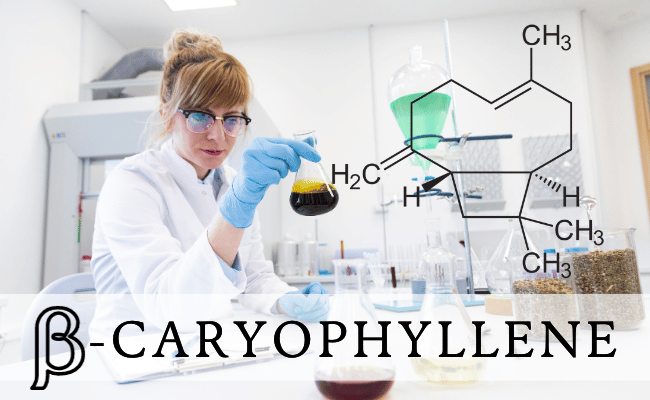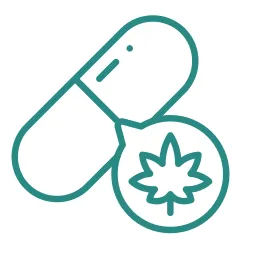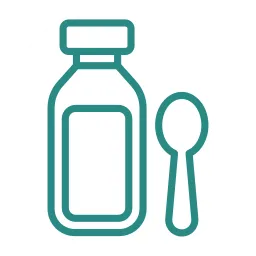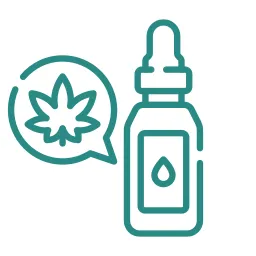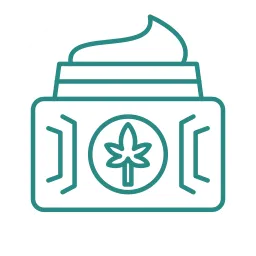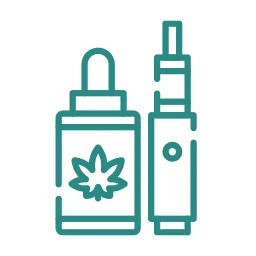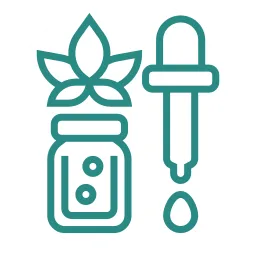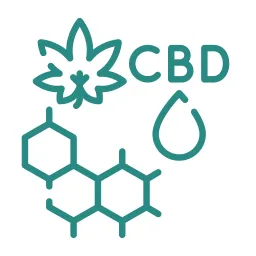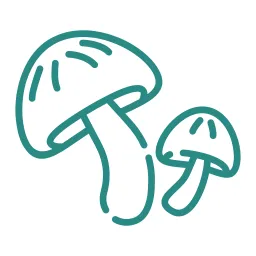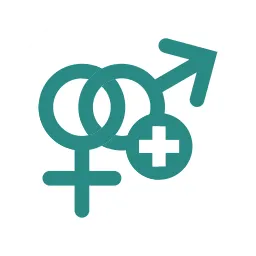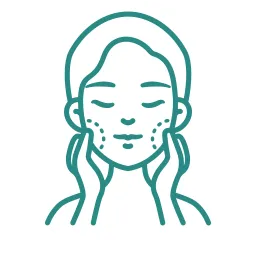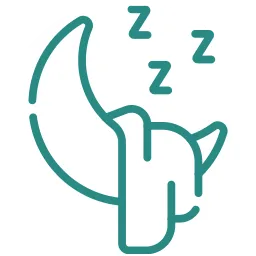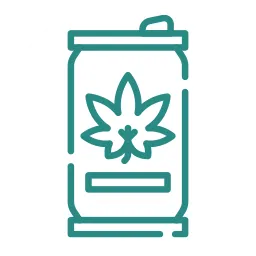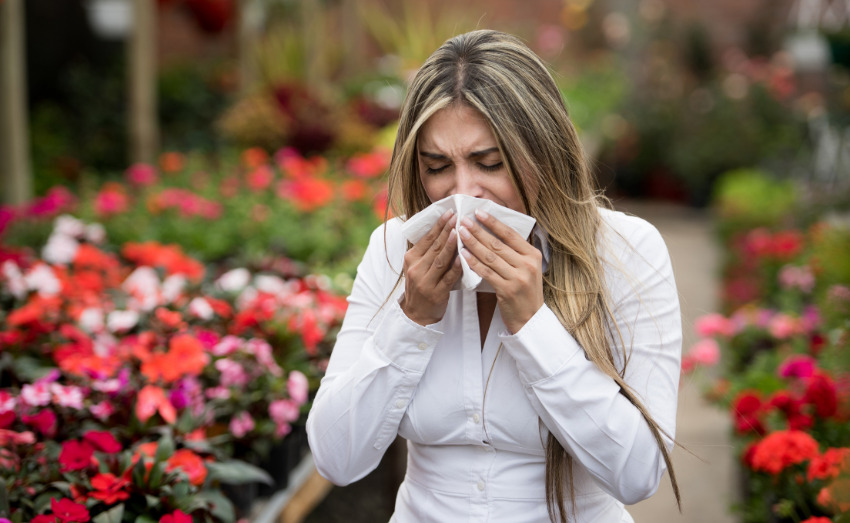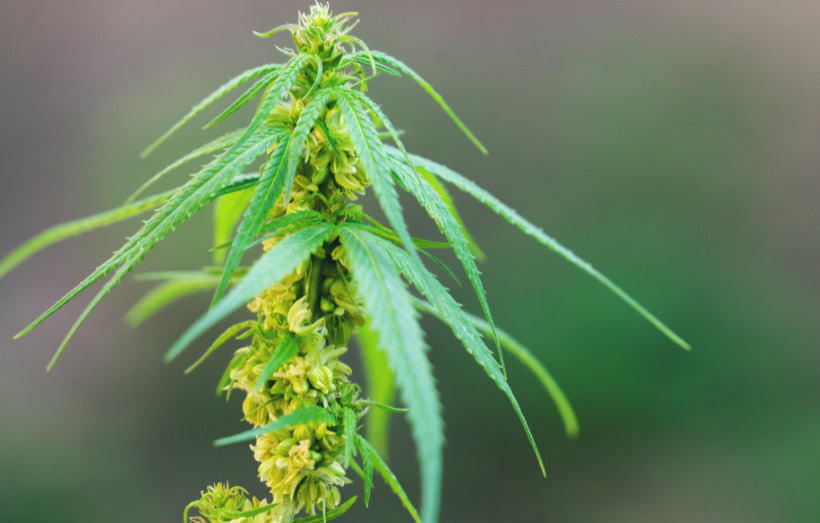Hayfever’s extreme symptoms can differ a lot from person to person. While some might have a slight reaction, others could have more extreme symptoms. This difference can be due to various factors, such as how the person’s immune system responds, the kind and quantity of allergens they come into contact with, and their general health and lifestyle.
Understanding Hayfever
Hayfever, or allergic rhinitis, is a reaction to allergens like pollen, dust mites, or pet fur. People with hay fever have an immune system that reacts strongly when they encounter these allergens, releasing chemicals such as histamine1. This results in symptoms like sneezing, a runny or blocked nose, eyes that are itchy or watery, and an itchy throat. Hayfever can be seasonal (happening at certain times of the year) or perennial (happening all year round).
What Causes Extreme Hayfever?
- Outdoor allergens: These include pollen from grass, trees, and weeds.
- Indoor allergens: Dust particles, pet hair, and mold can cause year-round hayfever symptoms2.
- Irritants: Substances like cigarette smoke, perfumes, and diesel exhaust can also trigger symptoms.
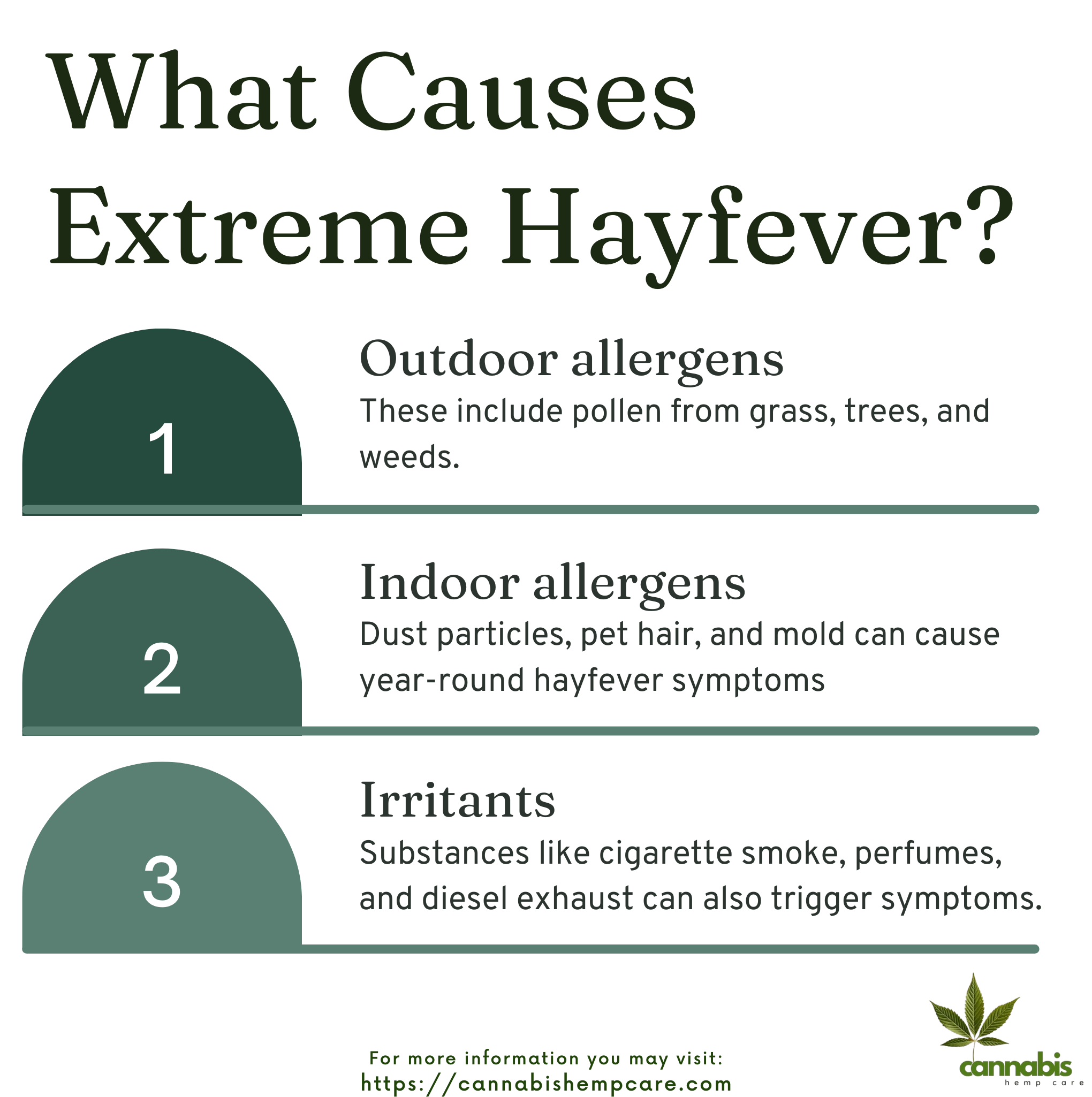
Treatments for Extreme Hayfever
If you’re dealing with extreme hayfever, here are some ways to manage it:
- Avoidance: Try to stay away from pollen, which is often the cause of hay fever. This can be hard, especially in the summer.
- Medication: There are many medicines that can help with hay fever symptoms. Antihistamines can stop an allergic reaction, and corticosteroids can lessen inflammation and swelling.
- Immunotherapy: For serious allergies, you might need regular shots based on your blood test results. This helps your body become immune to certain allergens.
- Nasal rinses: Rinsing your nose with saline solution can clear out allergens and ease nasal congestion.
Factors Contributing to Extreme Hayfever
- Allergen contact: The more you come into contact with hayfever triggers, the worse your symptoms can become.
- Unnoticed food allergies: Some hayfever sufferers may unknowingly have food allergies that intensify their hayfever symptoms.
- Genetic factors: Your genes can influence your hay fever and other allergies. Your allergy triggers may be similar or different from those of your family members.
Natural Remedies For Hayfever
here are some simple and direct ways to ease hayfever symptoms:
- Local Honey: Eating honey made in your local area can increase your resistance to local pollen.
- Probiotics: Maintaining a healthy gut can boost your immune system. Probiotic supplements have been shown to help those with hay fever.3
- Quercetin: This natural antihistamine is found in foods such as onions, apples, black tea, berries, capers, and red wine. It’s also available as a supplement.
- Herbal Tea: Chamomile tea is known to ease hay fever symptoms. Applying chamomile and lemon oil on a tissue and inhaling it can also help. Ginger tea and raw honey can clear chest congestion and phlegm.4
- Vitamin C and Zinc: These nutrients are vital for a healthy immune system. Vitamin C is a strong antioxidant and natural antihistamine, while zinc supports the immune system and healing process.
Always consult a healthcare professional before starting any new treatment
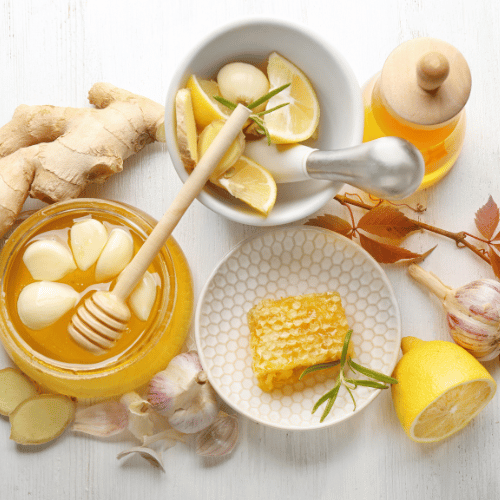
Manage Extreme Hayfever Symptoms
- Avoid Allergens
- Wear Sunglasses
- Medication
- Immunotherapy
- Use Air Filters
- Change Clothes and Shower After Being Outdoors
Immunotherapy For HayFever
Immunotherapy is a treatment for severe, ongoing hay fever. It involves gradual exposure to pollen to build resistance5. The treatment starts in winter, about 3 months before hay fever season.
The therapy has two phases. The first phase lasts three to six months, where the dose of allergens is slowly increased until a target dose is reached. The second phase maintains this dose to keep the immune tolerance6. This phase can last up to five years or more.
Lifestyle Changes
Here are some lifestyle changes that can help manage extreme hayfever:
- Hygiene: Shower and change your clothes after being outdoors to wash off any pollen on your body and hair.
- Home Environment: Maintain a clean home to minimize indoor allergens like dust mites and pet dander. Ensure air conditioners are cleaned regularly to prevent allergen circulation.
- Diet: Incorporate Omega 3 Fatty acid-rich foods like salmon, tuna, and mackerel into your meals. Eat foods that aid in alleviating allergies, like onions, peppers, berries, and parsley.
Always consult advice from a healthcare professional before implementing significant alterations to your lifestyle or eating habits.
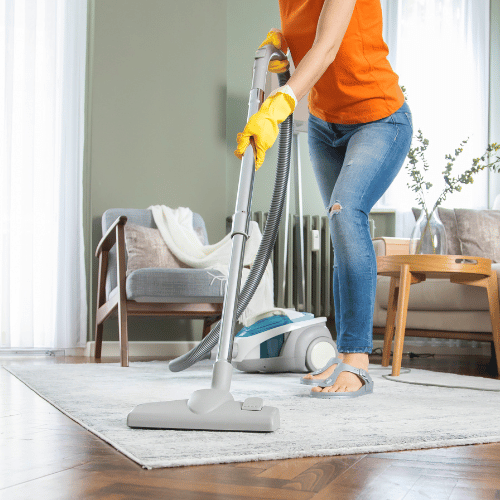
Conclusion
Hay fever can be bothersome and even hindering for some individuals. Knowing what causes it and what triggers it can aid in effectively controlling its symptoms. If you’re dealing with intense hay fever symptoms impacting your daily life, it’s crucial to get medical help for an accurate diagnosis and appropriate treatment.
FAQs
Sources
- “MSN.” Www.msn.com, www.msn.com/en-us/health/condition/Allergic-rhinitis/hp-Allergic-rhinitis?source=conditioncdx. Accessed 8 Oct. 2023. ↩︎
- Australia, Healthdirect. “Hay Fever (Allergic Rhinitis).” Www.healthdirect.gov.au, 29 July 2019, www.healthdirect.gov.au/hay-fever. Accessed 8 Oct. 2023. ↩︎
- Edwards, Natasha. “10 Natural Remedies for Hay Fever.” Medino, www.medino.com/article/natural-remedies-for-hayfever. Accessed 8 Oct. 2023. ↩︎
- “The Best Homemade Remedies to Treat Hay Fever and Seasonal Allergies.” NaturalNews, www.naturalnews.com/035367_hay_fever_seasonal_allergies_remedies.html. Accessed 8 Oct. 2023. ↩︎
- “Hay Fever Symptoms and Treatments.” Nhsinform.scot, 2019, www.nhsinform.scot/illnesses-and-conditions/immune-system/hay-fever. Accessed 8 Oct. 2023. ↩︎
- Wilson, Philippe B., and Samuel J. White. “Hay Fever: How Immunotherapy Can Help Sufferers Not Getting Relief from the Usual Treatments.” The Conversation, 18 May 2023, theconversation.com/hay-fever-how-immunotherapy-can-help-sufferers-not-getting-relief-from-the-usual-treatments-204945. Accessed 8 Oct. 2023. ↩︎

